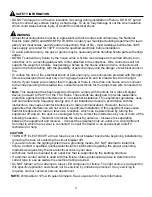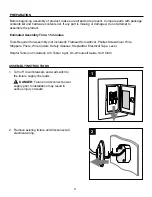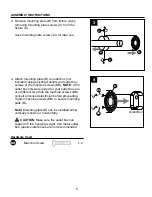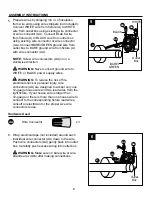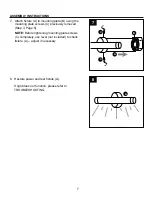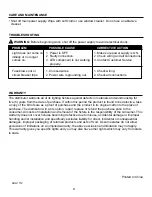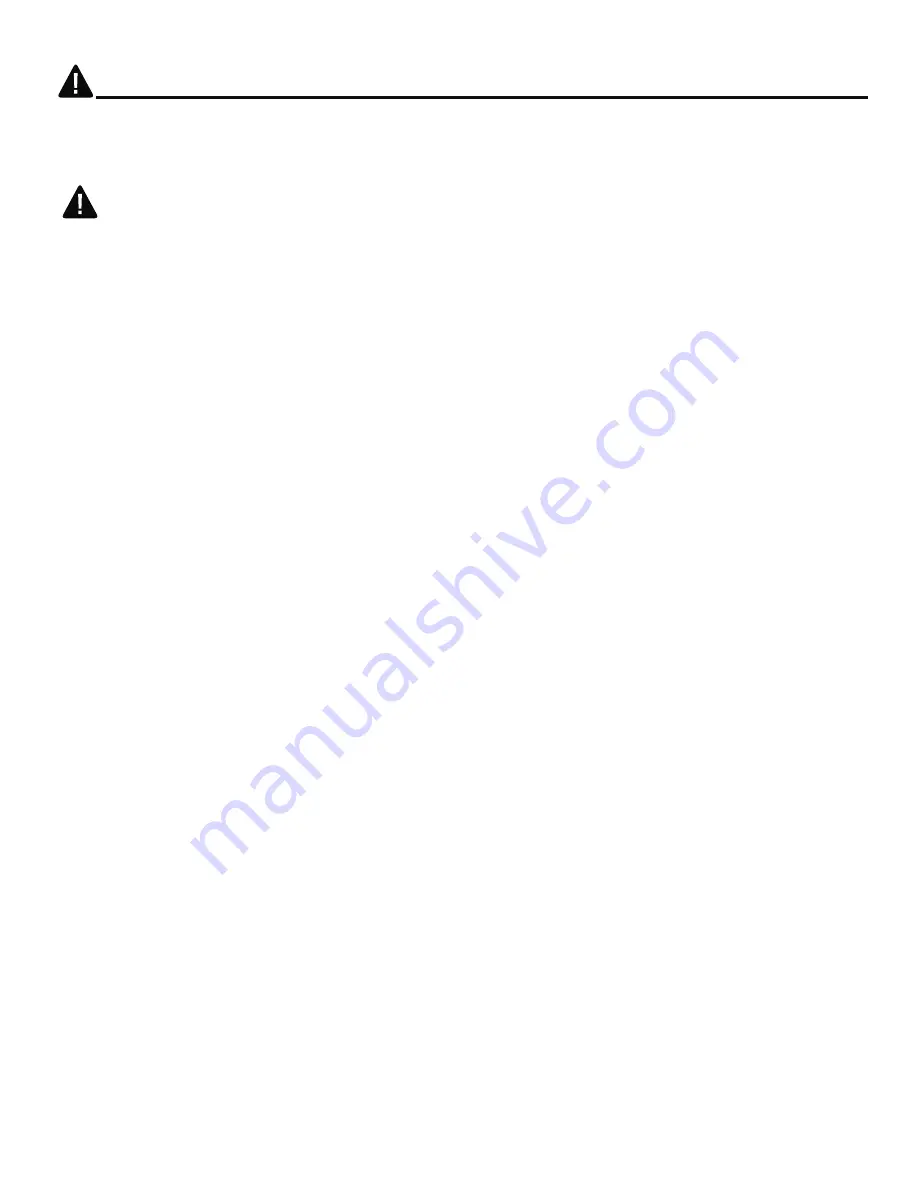
3
G
•
DO NOT damage or cut the wire insulation (covering) during installation of fixture. DO NOT permit
wires to contact any surface having a sharp edge. To do so may damage or cut the wire insulation,
which could cause serious injury or death from electrical shock.
SAFETY INFORMATION
•
All electrical connections must be in agreement with local codes and ordinances, the National
Electric Code (NEC) and ANSI/NFPA 70-1999. Contact your municipal building department to learn
about your local codes, permits and/or inspections.
Risk of
fire - most dwellings built before 1985
have supply wire rated for 140°F. Consult a qualified electrician before installation.
•
To avoid personal injury, the use of gloves may be necessary while handling fixture parts with sharp
edges.
•
DO NOT suspend any fixture by the house wires. A fixture must always be mounted directly to an
outlet box or to a mounting plate which is first attached to the outlet box. Wire connectors will not
support the weight of a fixture. Suspending a fixture by the house wires and wire connectors will
result in the fixture falling, with the possibility of personal injury and the danger of electrical shock or
fire.
•
To reduce the risk of fire, electrical shock or personal injury, wire connectors provided with this
light
fixture are designed to accept only one 12-gauge house wire and two lead wires from the light
fixture. If your house wire is larger than 12-gauge or there is more than one house wire to connect
to th
e corresponding fix
ture lead wires, consult an electrician for the proper size wire connectors to
use.
•
Note
: This equipment has been tested and found to comply with the limits for a Class B digital
device, pursuant to Part 15 of the FCC Rules. These limits are designed to provide reasonable
protection against harmful interference in a residential installation. This equipment generates, uses
and can radiate radio frequency energy and, if not installed and used in accordance with the
instructions, may cause harmful interference to radio communications. However, there is no
guarantee that interference will not occur in a particular installation. If this equipment does cause
harmful interference to radio or television reception, which can be determined by turning the
equipment off and on, the user is encouraged to try to correct the interference by one or more of the
following measures: - Reorient or relocate the receiving antenna. - Increase the separation
between the equipment and receiver. - Connect the equipment into an outlet on a circuit different
from that to which the receiver is connected. Consult the dealer or an experienced radio/TV
technician for help.
•
TURN OFF ELECTRICITY at main fuse box (or circuit breaker box) before beginning installation by
removing the fuse (or switching the circuit breaker off).
•
If you are not sure the lighting system has a grounding means, DO NOT attempt to install this
fixture. Contact a qualified, licensed electrician for information regarding the proper grounding
methods as required by the local electrical code in your area.
•
All fixtures must be mounted to an outlet box that is supported by the building structure.
•
If a dimmer control switch is used with this fixture, obtain professional advice to determine the
correct type to use as well as the electrical rating required.
•
Do NOT tamper with or attempt to repair LED component of fixture. The light source is designed for
this specific application and should not be serviced by untrained personnel. If any servicing is
required, call our customer service department.
WARNING
CAUTION
NOTE:
Dimmable to 10% with select dimmers. See Lowes.com for more information.



